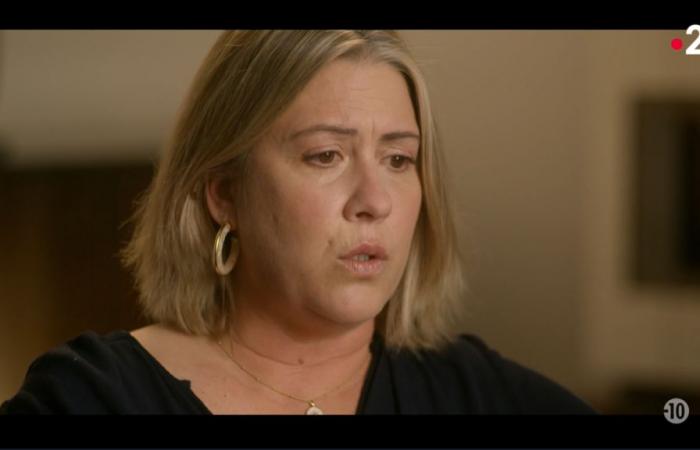
“Often, justice remains deaf to chemical submission” notes Caroline Darian.
SEXUAL VIOLENCE – “Chemical submission: so that shame changes sides. » In the wake of the Mazan rape trial and Gisèle Pelicot's choice to lift the closed session of the hearings, several victims of rape by chemical submission chose to testify, with their faces uncovered, in a documentary broadcast this Tuesday, January 21 at 9 p.m. 05 on France 2.
In this film directed by Linda Bengali, the story of Caroline Darian, daughter of Gisèle Pelicot, serves as a common thread to accompany that of six other victims. They recount the violence they suffered, but also a journey strewn with pitfalls to obtain justice.
Chemical submission and amnesia
The documentary gives voice to five women and one man whose ages and profiles are diverse, but whose testimonies have several points in common. At the time of their attacks, several women interviewed spoke of a “blackout” because of the substances consumed by force. Like Zoé, now a general practitioner, drugged without her knowledge at the age of 15 during a music festival in Niort. On screen, she explains that she doesn't know what happened to her after 11 p.m. that evening. She said she woke up several hours later lying on the ground in an isolated area, naked and injured.
For her, this absence of memories is accompanied by a “enormous feeling of dispossession”. According to the documentary, one in two victims of submission suffers from amnesia – a form of violence that also allows abusers to manipulate or lie. Thus, when Céline, another woman interviewed, woke up alongside her attacker after a blackout lasting several hours, she explains that he told her that she had drunk a lot and that she was “completely drunk”. However, she remembers having only had one drink with the one she accuses.
How to prove chemical submission?
For several of the victims, it is medical examinations which prove that a rape took place. But even with biological traces, it is difficult to obtain justice. It is “a long journey and a race against time, which often begins in the face of poorly trained police officers”describes the documentary. The film then gives the floor to Léa, who, after being drugged without her knowledge in a bar, testifies to having been raped by two men. Medical examinations corroborate his story, but because they took place more than 24 hours after the incident, law enforcement says he is “too late to detect GHB” and therefore very difficult to prove that she was drugged. A year after filing a complaint, she learned that it would have been possible to sample her hair to find traces of drugs.
-Even when these tests take place, their results are not always considered conclusive by the courts. Céline says that during the investigation of her attack, the analyzes clearly showed the presence of sleeping pills in her body. But, she explains, “it has never been proven that [son agresseur détenait] sleeping pills, and there is no proof that he gave them to me.”. He was sentenced to three years in prison for “sexual assault on a vulnerable person”.
“Often, justice remains deaf to chemical submission” notes Caroline Darian. The #Mendorspas association, of which she is president, works to raise awareness and alert on the issue. In France, the Medicines Safety Agency (ANSM) has asked laboratories to modify the smell, texture, aroma or color of certain medicines to combat this practice described by victims as a form of “total and absolute male domination”.
Also see on HuffPost :
Reading this content may result in cookies being placed by the third-party operator who hosts it. Taking into account the choices you have expressed regarding the deposit of cookies, we have blocked the display of this content. If you wish to access it, you must accept the “Third Party Content” category of cookies by clicking on the button below.
Play Video





